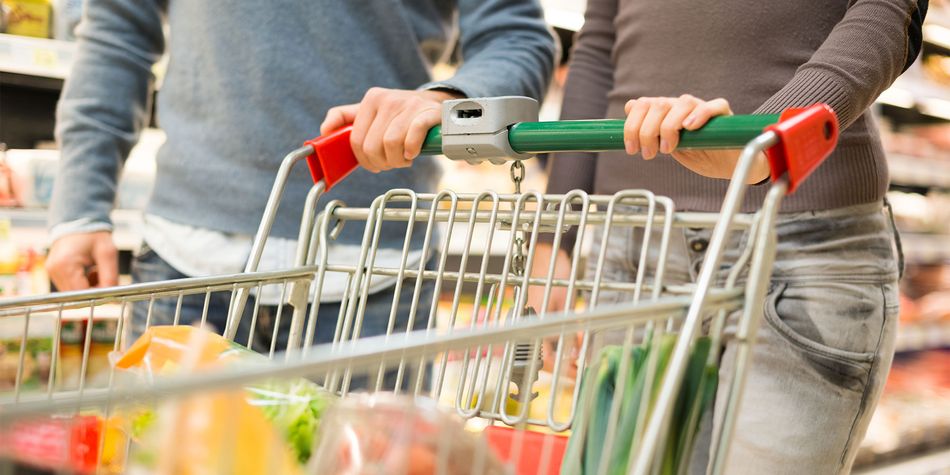The problem with Prime - and other high-caffeine drinks

If you have a school-age child, chances are you've already heard of Prime.
The drinks brand - founded by two popular YouTube influencers Logan Paul and KSI - caused a craze when it was released last year. Children and young teens were desperate to get hold of a bottle and drinks were being resold for up to £20 a pop (they're usually around £2.50).
The original drink is essentially a coconut water-based soft drink, but this year an energy drink was added to the range. It sports similar, brightly coloured cans and child-friendly flavours such as tropical punch, strawberry watermelon and ice pop.
But Prime Energy contains more caffeine per 100ml than all its major rivals, and shouldn't be consumed by children.
Live well, eat better and stay healthy: sign up for our free monthly Food & Health newsletter for the latest insights delivered straight to your inbox
Why is Prime Energy bad for children?

Prime Energy contains 140mg of caffeine per 250ml can. That's nearly twice as much as a can of Red Bull (80mg per 250ml can) and more than four times as much as a can of Coca-Cola (34mg per 330ml can).
High-caffeine energy drinks do carry warnings on the cans saying these drinks are for over 16s and Prime says its Energy drink isn't recommended for children under 18. But Prime Hydration and Prime Energy come in similar flavours and packaging, making it easy to confuse the two.
Barbara Crowther from the Children’s Food Campaign told us: ‘We gave Prime a Children’s ‘Yucky’ award this year for using youth-friendly advertising, after a child was hospitalised after drinking Prime Energy.'
How energy drinks affect kids
Too much caffeine is bad for anyone, but children are particularly sensitive to the effects, partly because they weigh less so the effects are magnified.
Effects of caffeine on children include increased blood pressure, problems with concentration and sleep, headaches and stomach aches.
The European Food Safety Authority says a single dose of caffeine up to 3mg per body weight shouldn't cause harm. For a 10-year-old weighing 30kg, this is 90mg of caffeine.
But when high caffeine levels are packaged up in appealing flavours it makes it easy for kids to unwittingly consume more than they should.
Portion sizes examined - we reveal how unrealistic pack sizes make it hard to know how much you're actually eating, and what to do about it
Is it legal for children to buy energy drinks?

Currently, it's legal for children to buy energy drinks in the UK, although drinks containing large quantities of caffeine must contain a warning on the pack stating they aren't recommended for children or pregnant women.
In 2019 the UK government announced it would ban the sale of energy drinks to children under 16, but this hasn’t happened.
When quizzed on why the ban hasn't come into effect, the Department of Health and Social Care (DHSC) told us it ‘will be setting out our full response to the consultation in due course’, but it couldn’t say when this might be.
In May 2023 the Scottish government announced it will not be implementing measures to restrict the sales of energy drinks to children and young people.
Most major supermarkets and some councils have introduced their own voluntary bans on selling energy drinks to children under 16, but without an outright ban children can still buy them in smaller stores.
Prime didn't respond to our request for comment.
Which energy drinks have the highest caffeine levels?

Prime Energy sweeps in at the top with the highest level of caffeine per 100ml of the big brands. Most others have 25% lower levels per 100ml, although the can size varies.
It’s not just children who should be wary of caffeine-packed cans.
Some super-sized energy drinks contain nearly double your daily recommended maximum level of sugar (Monster Origin), as well as high levels of caffeine.
| Caffeine per 100ml | Caffeine per can | Sugar per can | |
|---|---|---|---|
| Prime Energy | 42.4mg | 140mg/330ml | None |
| Red Bull Original | 32mg | 80mg/250ml | 27.5g |
| Monster Origin | 32mg | 160mg/500ml | 55g |
| Relentless Origin | 32mg | 160mg/500ml | 19g |
| N-Gine Energy | 32mg | 80mg/250ml | 10.5g |
| Lucozade Alert | 32mg | 160mg/500ml | 20.1g |
| Rockstar Energy | 32mg | 160mg/500ml | 24g |
| Tenzing | 32mg | 80mg/250ml | 11.25g |
| Coca-Cola | 10.3mg | 34mg/330ml | 35g |
While caffeine levels aren't necessarily that different from buying a strong coffee, watch out for extra-large can sizes. The lack of a resealable lid means you’re more likely to polish off the whole lot in one go.
Where you buy your coffee from can also have a big impact on how much caffeine you get - see our previous investigation into high street coffee caffeine levels, which found some contain nearly five times as much caffeine as others.
Find out how much sugar is in your high street iced coffee - and why it matters




